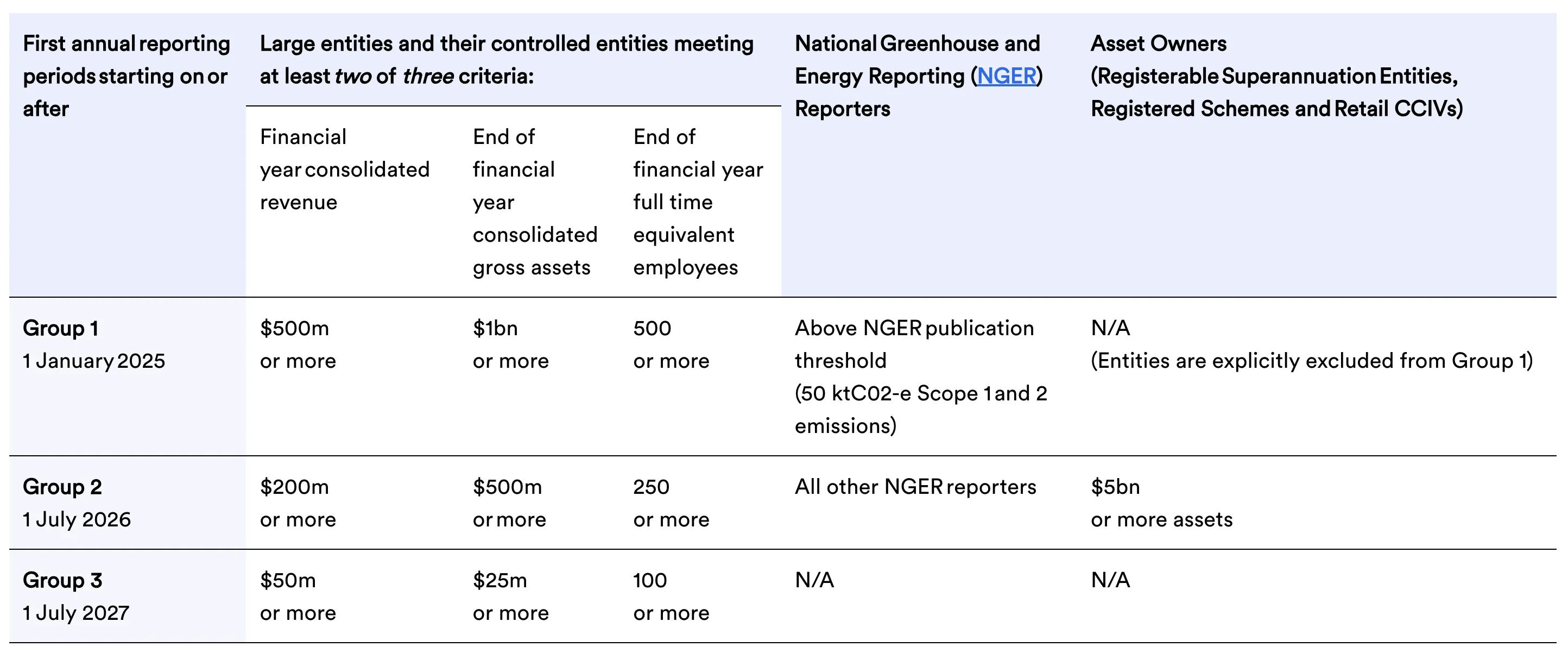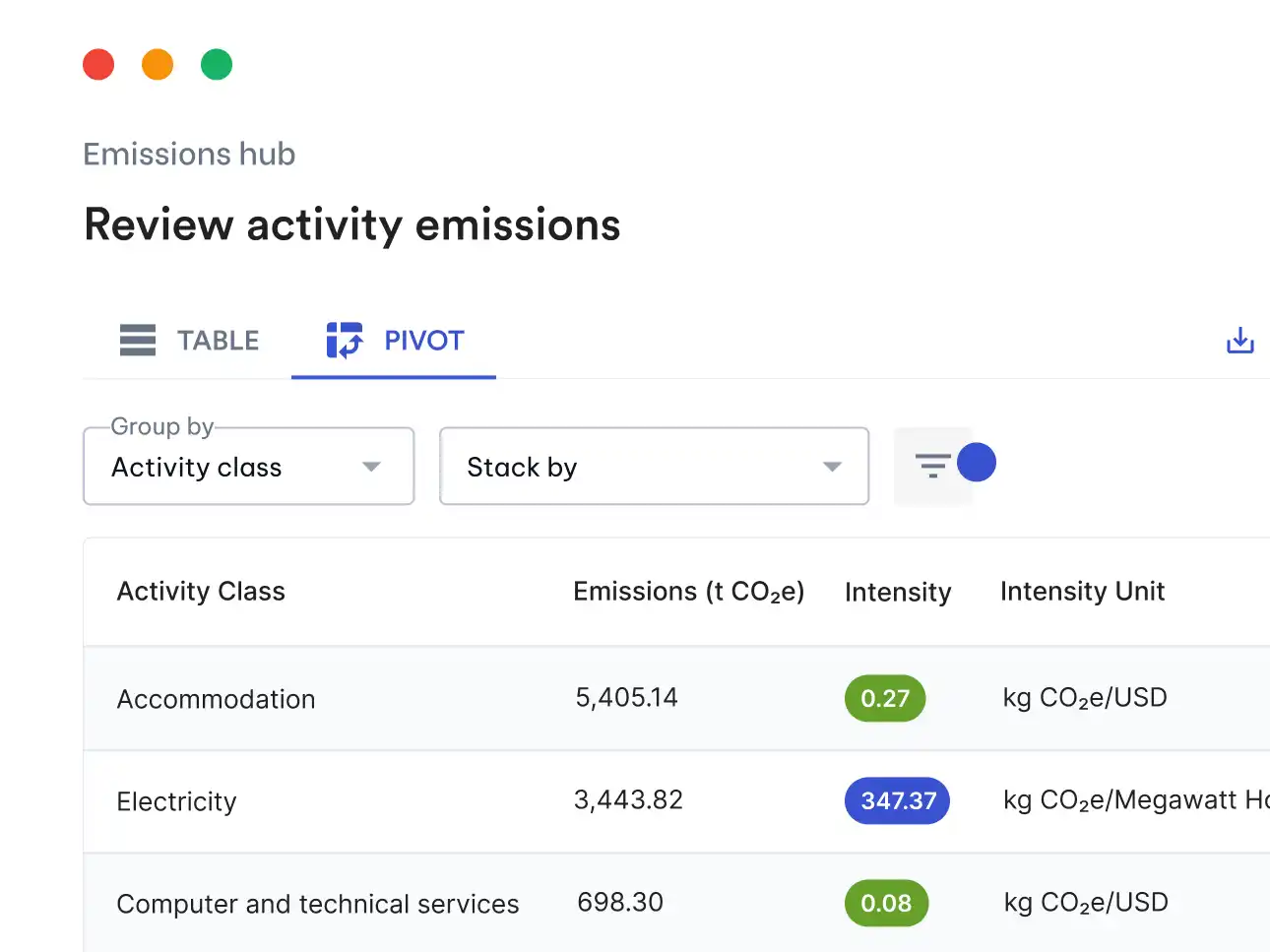Australia’s new Australian Sustainability Reporting Standards (ASRS) came into effect on 1st January 2025, establishing a mandatory framework for businesses to measure, report, and reduce their greenhouse gas (GHG) emissions. Designed to align with Australia’s net-zero goals and the Paris Agreement, the ASRS requires enterprises to comply with stringent emissions benchmarks or face financial and reputational penalties.
For enterprises, successfully navigating the ASRS isn’t just about compliance — it’s an opportunity to position themselves as leaders in sustainability. But compliance isn’t easy. The ASRS requires comprehensive emissions tracking, including the notoriously complex Scope 3 emissions, and demands detailed reporting and reduction plans.
This is why the best strategy for any enterprise is to work with a trusted sustainability consultant supported by cutting-edge technology. Platforms like Australian-based Avarni, which already partners with global consulting leaders like BDO, KPMG, and Schneider Electric, simplify emissions management and ensure that enterprises are not only compliant but ahead of the curve.
In this article, we’ll explore the ASRS, the businesses it impacts, and why partnering with consultants and leveraging technology like Avarni are critical for success.
What is the ASRS and why does it matter for enterprises?
The ASRS is Australia’s primary regulatory framework for reducing greenhouse gas emissions. It applies to businesses that meet specific financial and emissions thresholds, requiring them to measure and report their emissions and implement reduction strategies. The ASRS is particularly focused on large emitters and businesses in industries like energy, mining, manufacturing, and transportation, though smaller businesses may also be impacted through their supply chains.
A key component of the ASRS is AASB S2, titled Climate-related Disclosures, which mandates entities to disclose climate-related risks and opportunities expected to affect their cash flows, access to finance, or cost of capital over the short, medium, or long term. Effective for annual reporting periods beginning on or after 1 January 2025, AASB S2 requires detailed reporting on governance, strategy, risk management, and climate-related metrics. By aligning with global frameworks, this standard reinforces the importance of transparent disclosures and highlights the need for enterprises to adopt technology and expert consulting services to navigate these complex requirements effectively.
The ASRS has two primary goals:
- Accountability: The scheme mandates transparency in emissions reporting, ensuring that businesses actively participate in Australia’s transition to a low-carbon economy.
- Incentivising innovation: By requiring emissions reductions, the ASRS encourages businesses to adopt sustainable practices and invest in low-carbon technologies.
For enterprises, compliance is not just about avoiding penalties—it’s a chance to stay competitive in a global market that increasingly values sustainability. Meeting ASRS standards demonstrates responsibility, builds trust with stakeholders, and aligns with the growing expectations of investors, consumers, and partners.
However, compliance requires enterprises to navigate complex processes, from collecting data to developing reduction strategies. This makes having the right expertise and tools essential.
Who needs to comply with the ASRS?
The ASRS is structured to capture businesses with the greatest environmental and financial impact. Reporting requirements are determined by thresholds based on emissions levels, revenue, assets, and employee counts. Here's an overview of who is required to comply:

Importantly, enterprises that don’t meet the direct thresholds may still face indirect reporting requirements if they are part of the supply chains of larger businesses. Many large organizations are now requiring suppliers to disclose and reduce their Scope 3 emissions, which represent indirect emissions across the value chain.
Enterprises must understand which category they fall into, as this determines their specific reporting obligations and reduction targets under the ASRS.
Why ASRS compliance is challenging for enterprises
Complying with the ASRS isn’t a straightforward process. Enterprises face significant hurdles in managing the complexities of emissions reporting and reduction.
- Data complexity: Measuring emissions across Scopes 1, 2, and 3 involves pulling together data from multiple sources, including energy consumption, transportation, and supplier activities. Scope 3 emissions, in particular, are challenging as they often represent the largest share of a company’s carbon footprint but rely on supplier data that can be incomplete or inconsistent.
- Resource-intensive processes: Manual emissions accounting is time-consuming, prone to errors, and unsustainable for enterprises managing large datasets or multiple facilities.
- Reduction planning: Aligning operations with ASRS benchmarks requires strategic planning to reduce emissions without disrupting business operations or increasing costs.
- Reputational risk: Failing to comply with the ASRS can result in financial penalties, but even worse, it can damage a company’s reputation among investors, consumers, and partners.
To overcome these challenges, enterprises need both expert guidance and advanced tools to streamline their emissions reporting and ensure compliance.
The case for trusted consultants and technology
The best approach for enterprises navigating the ASRS is to pair trusted sustainability consultants with innovative technology like Avarni. Consultants provide the expertise needed to develop tailored compliance strategies, while platforms like Avarni ensure accurate emissions tracking, reporting, and planning. Here’s why this combination is critical:
- Expert guidance: Leading consultants specialize in navigating complex regulatory frameworks like the ASRS. They bring the industry knowledge and strategic insights needed to align your operations with compliance requirements while achieving meaningful emissions reductions.
- Streamlined data management: Avarni automates carbon accounting, consolidating emissions data from multiple sources into one intuitive platform. This reduces the burden on internal teams and ensures accurate, real-time reporting.
- Advanced emissions analysis: Avarni uses AI to tackle Scope 3 emissions, providing precise insights into supply chain activities and helping enterprises identify reduction opportunities that align with ASRS benchmarks.
- Scenario modeling: Enterprises can use Avarni to evaluate the financial and operational impacts of different reduction strategies, from renewable energy adoption to carbon offsets. This empowers decision-makers to choose the most effective pathway to compliance.
- Efficiency and scalability: Combining consultants with technology accelerates compliance efforts, enabling enterprises to manage large volumes of data, meet tight deadlines, and scale their sustainability initiatives as regulations evolve.
By leveraging this consulting expertise and technology, enterprises can not only meet their ASRS obligations but also drive long-term value through sustainability.
“Technology and data plus insight and explanation is the strongest play for clients.”
— Michael Cox, APAC Director, Sustainability Consulting at Schneider Electric Sustainability Business
Start your compliance journey today
Navigating the ASRS is a complex but critical step for Australian enterprises. Partnering with experienced consultants, supported by advanced platforms like Avarni, is the most effective way to streamline compliance, reduce emissions, and position your business as a leader in sustainability.
At Avarni, we work exclusively through trusted consulting partners like BDO, KPMG, and Schneider Electric to deliver seamless emissions management and compliance solutions. We are headquartered in Sydney, and have been delivering solutions to the Australian market for over 4 years.
If you don’t yet have a consulting partner, we’d be happy to introduce you to one of our trusted collaborators. Alternatively, if you already have a consultant, we’d love to work with them to integrate Avarni into your existing compliance processes.
Contact us today to start the conversation and learn how Avarni can help you and your consulting partner meet your ASRS obligations and achieve your sustainability goals.





